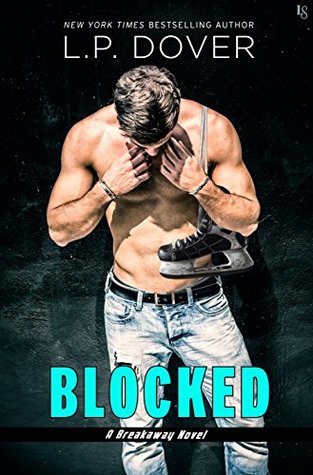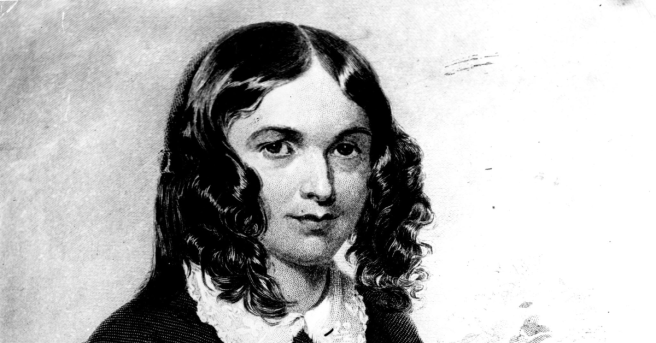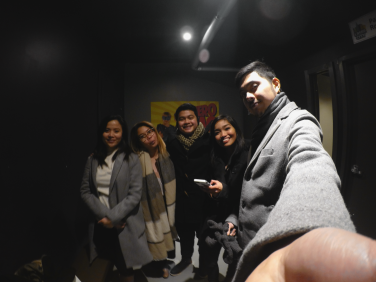
I was lucky enough to be one of fourteen poets to get a place on the three-day Masterclass with Don Share at the magical Molly Keane Writers’ Retreat in Ardmore. I have dozens of pages of notes, but this is a glimpse into some of the insights he offered. Yes, we know many of these things already, but it’s good to be reminded. And this is Don Share – if we pay attention, we might just get into Poetry Magazine one day.
The first thing Don looks at is the shape of the poem on a page. If it has sections, do the sections help? He likes names rather than pronouns. Names are striking things, he says. They can do a lot in a poem. Look at the etymology of words. What does Inchigeela mean? A place name becomes imbued with the qualities of its history. Be curious. Don’t just say ‘tree’ – what kind of tree? What kind of bog? A name becomes irrefutable.

He advocates paying as much attention to titles as to the poems themselves. We can encode meaning in images, he says, so it’s important to choose images that are genuinely resonant for you. He referenced Wallace Stevens’ Anecdote of the Jar:
I placed a jar in Tennessee,
And round it was, upon a hill.
It made the slovenly wilderness
Surround that hill.
The wilderness rose up to it,
And sprawled around, no longer wild.
The jar was round upon the ground
And tall and of a port in air.
It took dominion every where.
The jar was gray and bare.
It did not give of bird or bush,
Like nothing else in Tennessee.
– the jar doesn’t exist of course. It’s in his imagination, but it becomes as real as Marianne Moore’s toad in the garden.
A good poem has concision, but discursiveness has its place too. He encouraged us to push poems to their logical extreme – they might be really long poems by the end. Although don’t, he said, add to the mystification of the world without purpose.
He says poets should recycle everything. Write the poem on the left side and copious notes on the right – some of these might transfer over into the poem. Some of the poem might be cut. What isn’t used in the poem can be used elsewhere.

Eliminate ambiguity, but don’t spell out what the poem is about either. If your tendency is to write long lines, write longer ones. Look at what CK Williams does:
Butchers
Thank goodness we were able to wipe the Neanderthals out, beastly things,
from our mountains, our tundra—that way we had all the meat we might need.
Thus the butcher can display under our very eyes his hands on the block,
and never refer to the rooms hidden behind where dissections are effected,
where flesh is reduced to its shivering atoms and remade for our delectation
as cubes, cylinders, barely material puddles of admixtured horror and blood.
Rembrandt knew of all this—isn’t his flayed beef carcass really a caveman?
It’s Christ also, of course, but much more a troglodyte such as we no longer are.
Vanished those species—begone!—those tribes, those peoples, those nations—
Myrmidon, Ottoman, Olmec, Huron, and Kush: gone, gone, and goodbye.
2
But back to the chamber of torture, to Rembrandt, who was telling us surely
that hoisted with such cables and hung from such hooks we too would reveal
within us intricate layerings of color and pain: alive the brush is with pain,
aglow with the cruelties of crimson, the cooled, oblivious ivory of our innards.
Fling out the hooves of your hands! Open your breast, pluck out like an Aztec
your heart howling its Cro-Magnon cries that compel to battles of riddance!
Our own planet at last, where purged of wilderness, homesickness, prowling,
we’re no longer compelled to devour our enemies’ brains, thanks to our butcher,
who inhabits this palace, this senate, this sentried, barbed-wire enclosure
where dare enter none but subservient breeze; bent, broken blossom; dry rain.
Move stanzas around; the second stanza might end up as the final stanza. Use your intuition.
Let your landscape write you. Yeats becomes self-mythologizing by writing himself into place. He appropriates names, puts them in poems, and creates a resonance across cultures and time periods. ‘What’s Yeats without Fergus and Maud?’
Your aim should be to become un-ignorable. John Ashbery is un-ignorable, even though you might not like his work: here’s a link to his eleven-page poem, Self-Portrait in a Convex Mirror, a poem Don Share says he can’t ‘unsee’: https://www.poetryfoundation.org/poetrymagazine/browse?contentId=32944
Conceive of your work as having a high value, he said. Don’t weaken your poem by apologising for it.
Poetry Magazine publishes three hundred poems a year. Don Share and his fellow reader, Christina Pugh, read 150 000 poems to find those three hundred. He reads every poem. Imagine. What he looks for is a fact he doesn’t know. Some striking detail. An odd, or stubborn poem, something ‘recondite, almost alienating, even, as long as it’s un-ignorable’. He doesn’t always like the poems he publishes, he says, so there’s no point in trying to decipher his taste.

Resistance to a poem is important, he says. If it still follows you about and settles in, it’s time to pay attention. ‘I don’t know what Wallace Stevens’ poems are saying, and I don’t want to know,’ he says. ‘But he is opposing his imagination against the violence of reality. It’s a work of resistance.’
Look for the things that can power a poem. He doesn’t like false modesty, people saying ‘it’s only a poem.’ This indicates that they’re not willing to be serious. It lets them off the hook.
Also, the poems we see in an anthology are the result of a long journey of failed poems. ‘Yeats wrote some terrible poems!’ he said. But you can’t get to the great poems without the bad poems. You must have confidence that something is worth working on.
When ‘The Love Song of J. Alfred Prufrock’ (what a name! What a title!) was published, people said, ‘this is not a poem.’ But it is intractable, as are The Four Quartets and The Wasteland.
We heard loads of anecdotes about various poets. While Yeats was ‘a lunatic’, Eliot suffered from perceiving there was something missing in him, including passion. Pound devoted decades to writing his cantos but in the end felt that his life’s work was a failure. He gave up writing, and even stopped speaking.
Don talked about the fact that we don’t write – or read – in a vacuum. Everything is connected. Poems and poets exist alongside each other. This creates a context. Our poems address something found in another writer’s work. Show all your influences in your poems, he said.
Look for the structural principle in your poem – it may be plain-spoken and straightforward, or it could have a clear soundscape. A long poem or series of sequences could be connected, for example, by rivers, as John Ashbery’s Into the Dusk-Charged Air is: https://www.poemhunter.com/poem/into-the-dusk-charged-air/
‘When I look at a poem, I try to imagine its opposite,’ said Don. If it’s long, how would it work as a short poem, and vice versa. Richard Ford says write something as though it’s 100% true – and then say the opposite.
He talked about style, how a person’s style is unmistakable: Virginia Woolf’s style was a profusion of words and a disruption of syntax. Auden ‘throws in the kitchen sink; he’s coarse, jokey, a smarty-pants.’ But it’s good to encounter another writer’s style, ‘and let it in – then put yourself in. Say things only you can account for.’ Jorie Graham’s style is to write ‘fast’ and her work is very personal; she writes about her father’s illness / dying/ terrible secrets about her family’s history. Masks are an idea she got from Yeats. What we inherit as poets is something related to the wearing of masks. Truths otherwise obscured can be conveyed in the process. Don reminded us of the power of masks in many cultures.
Jorie Graham has renounced a lot of what she’s written, and says that she doesn’t want to be ‘gratuitously exploitative and condemning.’ But readers always want to see her latest work. Louise Glück has a restless intelligence, feeds on things, and moves on.
If you’re in the habit of doing things one way, switch gears.

We should write about what is specific to us, our place and time. Prose writers take on the big questions. This is something more poets need to do. Not just the immediate things, but the larger perspective. There is a tendency these days to be too narcissistic: ‘This happened to me. That’s all.’ What is the point? And our attention span is too short. He is interested in seeing more long poems – a commitment.
He talked about Ocean Vuong’s début collection. The writing is powerful. At every reading, Don says, people cry.
There has to be an honesty of approach.
Don Share doesn’t go for reticence. Go for more detail, he says. ‘A poem is a room, and it has to be furnished.’
Do the hardest thing it’s in your power to do, he says. Lack of courage and ambition are the greatest let-down. ‘I think people don’t work hard enough,’ he said. Competent poems are the worst thing. ‘I have to wrestle with that,’ he said. Remember, you are stuck with the things that have your name on them. It’s better not to write often.
The most interesting poets are those who do inexplicable things.
He said the most important book to come out of the States in the last thirty years is Claudia Rankine’s Citizen. It addresses the question of race, and how language can wound. She coins the term: ‘micro-aggressions’ and lists innocent black people who have been killed by the police, leaving space for the reader to add more names. Because there will be more names. The cumulative effect on people is ‘to wreck them’, he said.
But everything is up for negotiation, he says. ‘I’m happy to be wrong about everything.’
Advertisements Like this:Like Loading... Related





